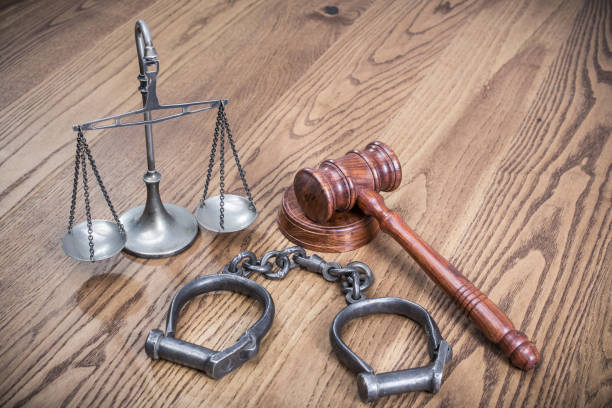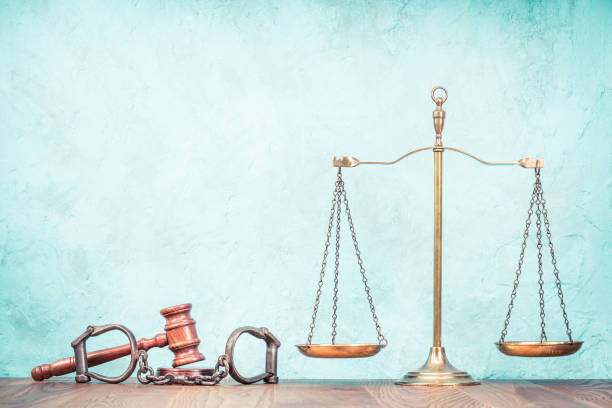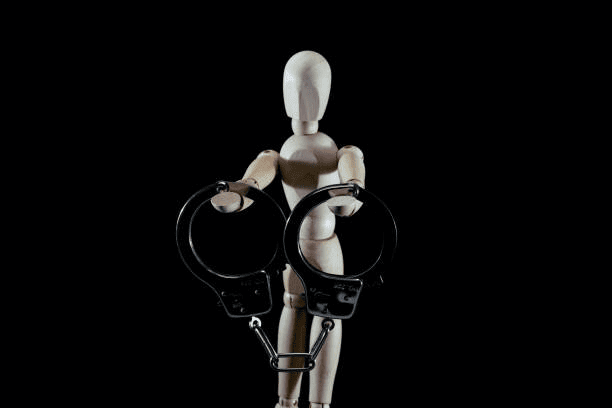False imprisonment occurs when authorities detain or confine someone against their will without legal justification. It is a violation of the right to liberty, and it can have a profound impact on the lives of the people involved. The definition of false imprisonment is as follows: ‘the intentional and unlawful restraint of the liberty of another person against that person’s will.’
Definition of False Imprisonment NSW
False imprisonment occurs when a person intentionally or negligently restricts the freedom of movement of another person without their consent or legal justification. This criminal offence or civil wrong happens when there is physical restraint or other means, such as threats, intimidation, or deception.
This common law offence may occur when police make an unauthorised or unlawful arrest, that is when they seize a person without a warrant and without complying with all the rules and regulations that govern such an arrest. Section 99 of the Law Enforcement (Powers and Responsibilities) Act 2002 provides for the instances when an officer may lawfully arrest a person even without a warrant:
- If an officer has reason to believe that a person has committed or is committing a crime,
- The arrest is reasonably necessary by the officer for any of the following reasons:
- to guarantee the person will appear in court.
- to stop the party from repeating or committing the offence again.
- to avoid tampering with the evidence.
- to avoid fabricating evidence.
- to protect anyone’s health or wellbeing, including the defendant and witnesses alike.
- to halt the fleeing individual.
- to seize any property that an individual may have related to the crime.
- due to the type or severity of the offence.
Note: A private individual may detain another until law enforcement officers arrive in a citizen’s arrest. This may occur when an offender has been ‘on the run’ and their name and photograph have been published in relation to offences.
A shopkeeper may detain a person for a brief period if they believe he or she has committed retail theft. This may be for a short period while they ascertain whether an item has been paid for or while the authorities are contacted.
Contributing Factors of False Imprisonment NSW
There are several contributing factors leading to a person being falsely imprisoned:
- Eyewitness errors or misidentification
- Erroneous informant testimony
- False confessions
- Prosecutorial misconduct or overzealousness
- False witness testimony
- Incompetent defence representation
- Forensic error or misleading forensic evidence
- Erroneous judicial instructions to jury
- Police misconduct or overzealousness
Do Wrongfully Convicted Persons Have a Right to Compensation?
The Australian Institute of Criminology states that most jurisdictions do not provide significant or open compensation awards. In Australia, many people who were unfairly convicted do not receive any compensation or have their legal bills covered, and the choices of whether or how much to pay them are never made public.
Except for the Australian Capital Territory (ACT), no Australian jurisdiction compensates people unfairly convicted and imprisoned. Nevertheless, a state or territorial government may decide to make an ex gratia [out of grace or not compelled by legal right] payment of its own volition or in response to a party’s request for such a payment. However, the case decisions discussed below provided an award of damages as compensation for a person’s wrongful conviction or detention in Australia.

Konneh v State of New South Wales (No. 3) [2013] NSWSC 1424
The court ruling in this criminal law case reinterprets the authority of arrest under the Bail Act of 1978. This decision allows many young people wrongfully detained by the police to be eligible for compensation for false detention, wrongful arrest, and abuse (NSW). Adults who were arrested for violating bail when they were out on bail, including those not party to the class action lawsuit, may also be able to rely on the ruling to pursue damages for false imprisonment.
Mr. Konneh, a 21-year-old from Sierra Leone, immigrated to Australia when he was 15. He was detained by NSW Police in August 2010 at his residence in the western suburbs of Sydney when he was 18 years old on the false suspicion that he had violated his bail.
In reality, he was not even out on bond because his charges had been dropped four days earlier under the Young Offenders Act 1997 (NSW). Mr. Konneh claims that he was shackled and subjected to a strip search while being detained. He was imprisoned overnight before being freed by the Children’s Court.
Mr. Konneh demanded aggravated and exemplary damages as well as compensation for false incarceration, violence, and assault. He said that the Computerised Operational Policing System, or COPS, a database of the NSW Police had issues that made the information in it unreliable and frequently wrong and that the arresting officers knew about or should have known about these issues.
State of NSW v. Robinson (2019) HCA 46
In this case, when the Plaintiff learned the police wanted to speak with him, he went to a Sydney police station. Upon arriving, the Police detained him without a warrant because he had allegedly violated an Apprehended Violence Order (AVO). He consented to participate in a recorded interview, after which he was freed from all charges. For an hour and twenty minutes, he was in police custody.
Even though the Judge had ruled against the Plaintiff in the first instance, the Court of Appeal found that the arrest was unlawful because there was no intention of starting the criminal process because the police officer had not decided whether or not to charge the Plaintiff at the time of the arrest. As a result, the plaintiff’s claim of unjustified arrest and false incarceration was successful. He received $5000 as compensation for his one hour and 20 minutes of detention.
Defences for False Imprisonment NSW
In some cases, a person accused of false imprisonment NSW may have a legal defence. For example, if the detention was necessary to prevent harm to the victim or others, or if it is a lawful detention, the accused may have a defence. However, the defence must prove that the detention was necessary and reasonable.
- Lawful Authority. If the accused can prove that they had lawful authority to detain the individual, then they cannot be convicted of false imprisonment NSW.
- Consent. If the accused can prove that the individual gave their consent to such detention, they cannot be convicted of false imprisonment.
- Self-Defence. If the accused can prove that they detained the individual to protect themselves or others from harm. The detention must be reasonable and proportional to the threat faced.
- Necessity. If the accused can prove that they detained the individual to prevent more significant harm, they may not be convicted of false imprisonment. This defence is only available in very limited circumstances where the harm prevented outweighs the harm caused by the detention.
The Consequences of False Imprisonment NSW
When someone is wrongfully convicted and imprisoned, the consequences can be devastating. Here are some of the effects faced by individuals who have been falsely imprisoned:
- Loss of Freedom. Wrongfully convicted and imprisoned individuals are stripped of their ability to live their lives as they please.
- Emotional Trauma. Wrongfully convicted individuals may suffer from anxiety, depression, and post-traumatic stress disorder (PTSD) due to their experience.
- Damage to Reputation. Being falsely accused and imprisoned can damage an individual’s reputation and standing in their community.
- Financial Losses. Wrongfully convicted individuals may lose their jobs, homes, and savings due to their incarceration.
- Difficulty Reintegrating into Society. These individuals may face challenges finding employment, securing housing, or rebuilding their lives.

Contact a Lawyer If You’ve Been Wrongfully Convicted
In several ways, a lawyer can help victims of false imprisonment NSW. They can help:
- review the case file
- investigate the case
- file an appeal
- apply for a pardon
If you believe you have been wrongfully convicted, contacting a lawyer as soon as possible is essential. Solicitors can help you to understand your legal rights and options and to fight for justice. Our criminal lawyers at JB Solicitors can help you explore all legal options and provide representation and support.
Contact us today if you need help with criminal and civil proceedings.
